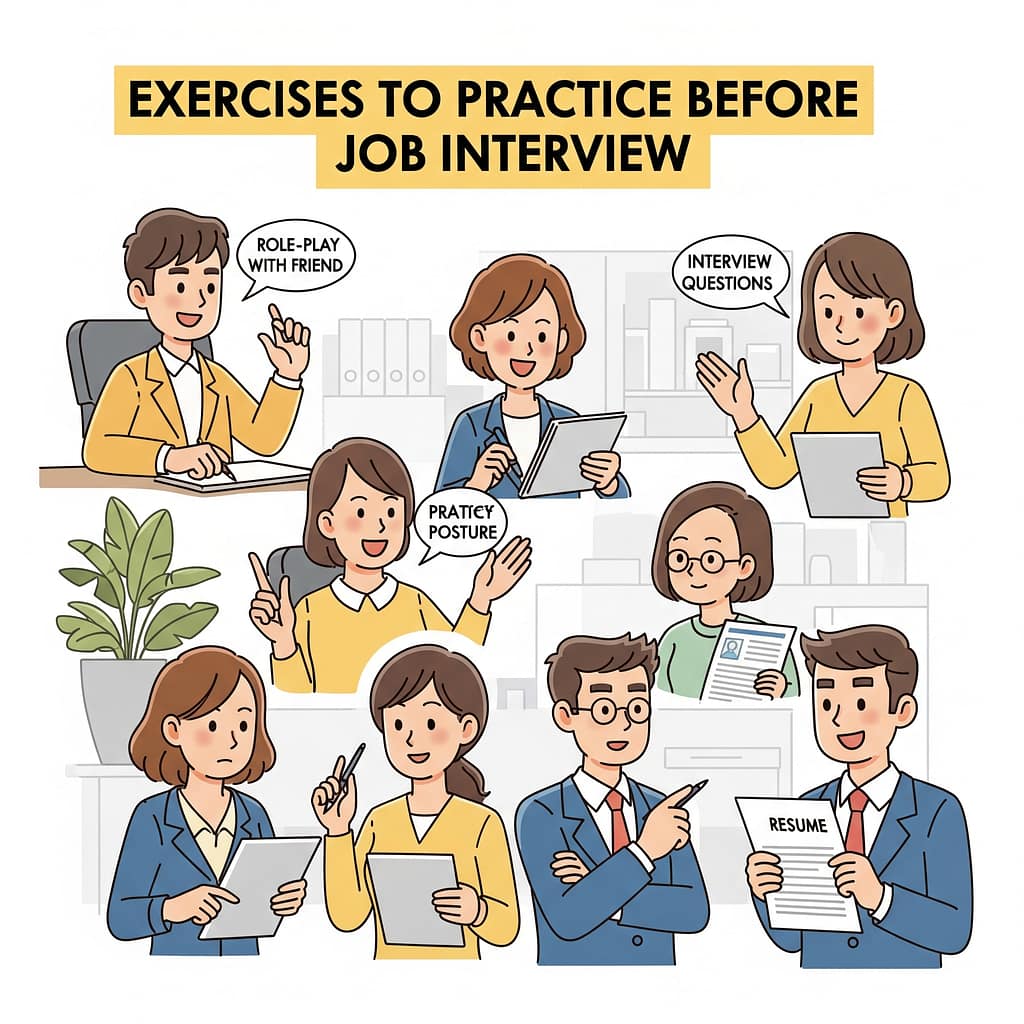
Do you have an interview in English coming up and don’t know where to start practicing? You’re not alone! Many professionals feel unsure when facing an interview in another language. That’s why preparing strategically with real exercises can make a big difference. In this article, I’ll share effective practices to train, gain fluency, and be ready for the big day.
1. Simulate an interview with common questions
One of the best exercises for job interviews in English is to practice answers to frequently asked questions. Record yourself, listen back, and correct your mistakes.
Examples to practice:
- Tell me about yourself.
- What are your strengths and weaknesses?
- Why do you want to work here?
- Describe a challenge you faced and how you solved it.
Tip: Answer out loud for at least 1 minute per question. This improves your fluency and confidence.
2. Do elevator pitch exercises
An elevator pitch is a short professional introduction, usually 30–60 seconds long.
Practical exercise:
- Set a timer for 45 seconds.
- Introduce yourself, say what you do, and what kind of job you’re looking for.
- Try to sound natural—don’t read.
Repeat this exercise 5 times, changing the focus slightly each time so your speech doesn’t sound robotic.
3. Practice with a coach or partner
Nothing beats real-time feedback. If you have a business English coach or a colleague who is also studying, try role-playing sessions.
Suggested activity:
- One person acts as the interviewer
- The other answers
- Then switch roles
This simulates real pressure and helps you react better to unexpected questions.
4. Expand your professional vocabulary
Many interviews require technical or business-related vocabulary. Make lists of key words from your field (marketing, sales, engineering, etc.) and use them in real sentences.
Practical exercise:
- Choose 10 key terms
- Create 1 sentence with each word
- Try to include them in your practice answers
5. Prepare answers for difficult questions
Some questions can feel uncomfortable, such as:
- Why did you leave your last job?
- What’s your expected salary?
- Do you have experience with [X software]?
Exercise:
- Write a short, diplomatic answer
- Practice it out loud until it feels natural
- Avoid negative or overly detailed responses
6. Do exercises for intonation and rhythm
Speaking English is not just about translating—it’s also about sounding clear and using good intonation. Sometimes a candidate knows what to say, but uses a flat tone or unclear accent.
Recommended exercise:
Choose a short video of a job interview in English
- Listen, pause, and repeat each sentence
- Try to imitate the intonation and pace
This improves your pronunciation and clarity when speaking.
7. Prepare a final question
Almost every interview ends with: “Do you have any questions for us?”
Not preparing anything for this moment is a mistake.
Practical exercise:
- Write 2 or 3 questions in advance for each interview
Examples:
- “What are the next steps in the hiring process?”
- “How do you define success in this role?”
- “What is the team culture like?”
✅ This shows real interest and good preparation.
Conclusion
Preparing for an interview in English with these exercises can be the difference between missing the opportunity and getting the job you dream of. Practicing helps you reduce nerves, feel more confident, and show your best self in another language.
With consistency and strategy, speaking English in interviews stops being a barrier and becomes a competitive advantage.
